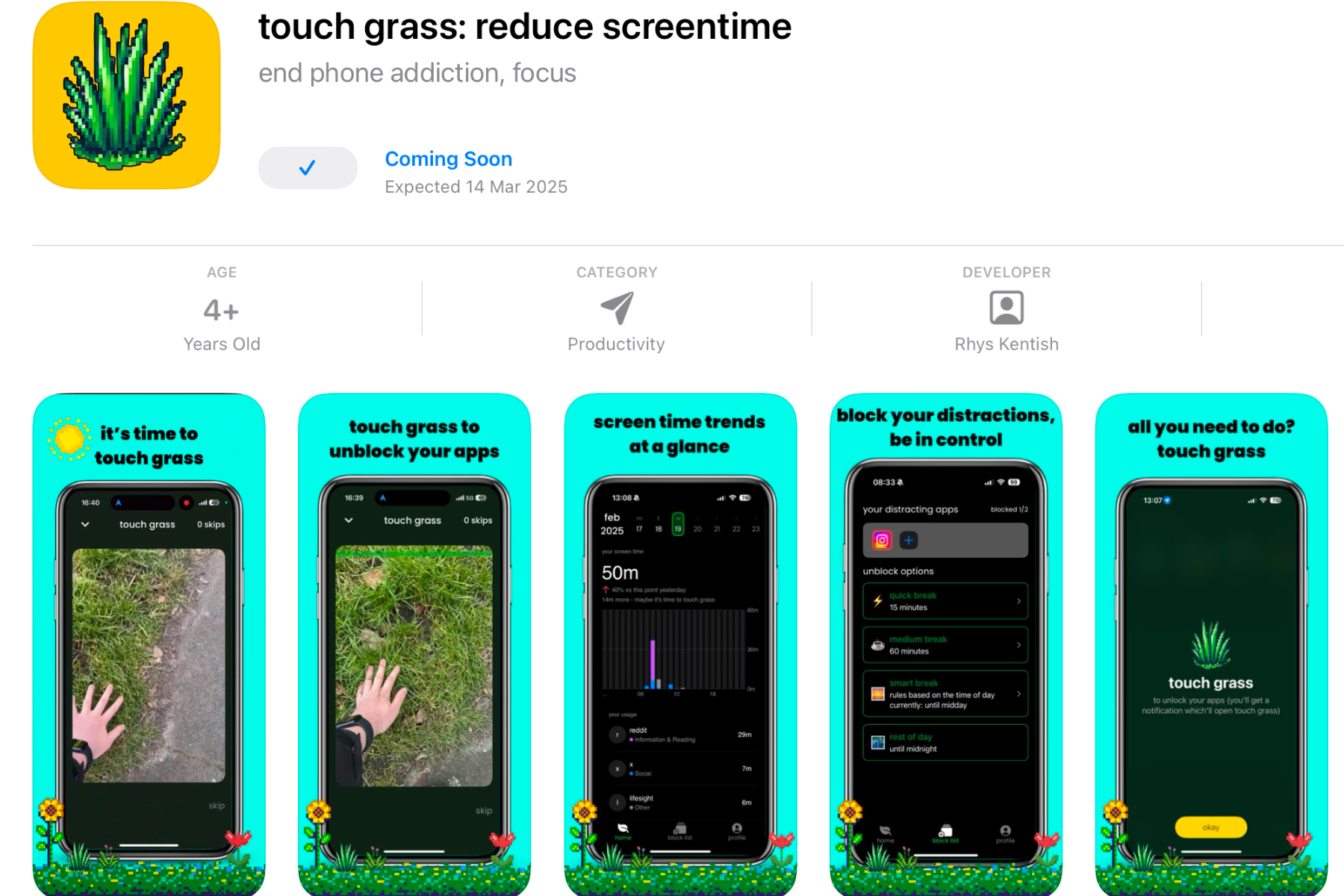Select Language:
In 2023, the Office of the Surgeon General (OSG) published a social media and youth mental health report, revealing that a remarkable 95% of teens aged 13 to 17 reported using social media ‘almost constantly.’
The report indicated that, “Individuals who engage in frequent and problematic social media use can experience alterations in brain structure akin to those observed in people dealing with substance use disorders or gambling addictions,” citing various studies.
A novel app called Touch Grass: Reduce Screentime might offer a remedy by encouraging users to step outside, touch some grass, and provide photographic evidence before they can access certain applications. This app was developed by Rhys Kentish, a software engineer with Brightec in the UK.

Set to launch on March 14, the app is currently available for pre-downloads on the App Store. Its core concept is simple: users can identify the digital distractions that lead them into endless scrolling and add them to their app list.
Please enable Javascript to view this content
The next time you wish to use those identified apps, you’ll need to go outdoors, make contact with some grass, and snap a picture to prove it. Utilizing advanced computer vision technology—similar to what powers Google Lens and autonomous vehicles—the app can verify that you indeed touched real grass before permitting app access.
While the Touch Grass app incorporates strict measures, it still offers some flexibility, allowing users a few exemptions each month and permitting customization of unlock durations to fit their habits. The developer also highlights that only “genuine grass” will be accepted as proof.
I’m looking forward to trying this feature and will keep an eye on social media for creative hacks.

The app aims to combat phone addiction, help users develop healthier digital habits, and strike a balance between technology use and real-world experiences.
Another interesting aspect is that users can buy skips, with half of the proceeds from these purchases going toward rewilding projects in the UK. Essentially, you’re not just reducing your screen time; you’re also supporting nature as you reclaim your time.
In the meantime, users can monitor their smartphone activity via the Screen Time dashboard on iPhones. This feature allows tracking of usage, setting time limits, enabling Downtime, and even managing parental controls. Android users have access to similar tools through the Digital Wellbeing dashboard.
The overarching goal is to manage screen time effectively. Research published in the PNAS NEXUS journal earlier this year found that reducing daily screen exposure proved to be even more effective than taking anti-depressants. Additionally, it helped individuals enhance self-control, strengthen social connections, engage more in real-world activities, and improve their sleep quality.






